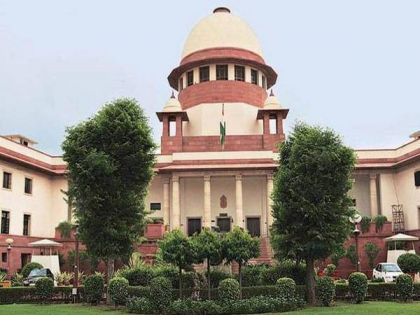Supreme Court to hear plea against LG conferring NSA powers to Delhi Police Commissioner
By ANI | Published: January 23, 2020 10:39 PM2020-01-23T22:39:56+5:302020-01-24T12:05:19+5:30
Supreme Court will on Friday hear a plea filed by lawyer ML Sharma against the order by Delhi Lt Governor l Baijal, conferring the Police Commissioner with the power to detain under the National Security Act (NSA) for a period of three months -- between January 19 and April 18.

Supreme Court to hear plea against LG conferring NSA powers to Delhi Police Commissioner
Supreme Court will on Friday hear a plea filed by lawyer ML Sharma against the order by Delhi Lt Governor l Baijal, conferring the Police Commissioner with the power to detain under the National Security Act (NSA) for a period of three months -- between January 19 and April 18.
Advocate Sharma in his petition mentioned that under Article 32 invoking people fundamental rights and imposing National Security Act (NSA) of 1980, to arrest and detain them for criticising, abusing, protesting against CAA of 2019, National Population Register (NPR) and National Register of Indian Citizens (NRC), violated fundamental rights guaranteed under Art 19 (1), 21 and 22 of the Constitution of India. He has demanded to quash it for being unconstitutional.
Earlier Delhi Lieutenant Governor l Baijal issued a notification giving the Delhi Police Commissioner authority that the Delhi Police can detain a person under the National Security Act (NSA).
According to the notification, the Delhi Police Commissioner has authority to detain a person from January 19 to April 18, using sub-section (3) of Section 3 of the National Security Act, 1980.
The NSA law gives the right to detain such a person for precautionary months that the administration feels threatened for national security and law and order situation.
Under this law, it is not mandatory to inform the person arrested on the basis of which he has been detained. The individual can appeal to an advisory board of the High Court but he is not given the facility of a lawyer.
This decision of the Lieutenant Governor of Delhi has come at a time when protests against the amended citizenship law "CAA" and the National Civil Register "NRC" are continuously being held at various places not only in Delhi but in many areas of India.
( With inputs from ANI )
Open in app